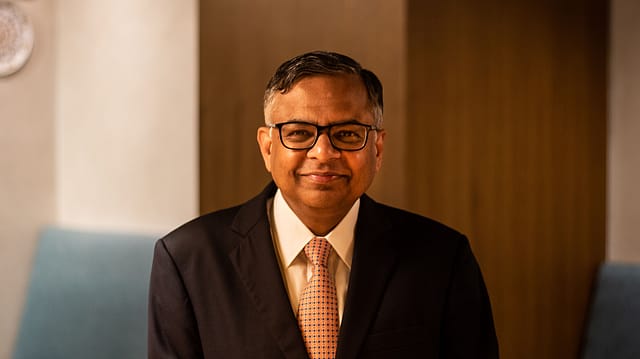Tata Sons' Chandra reiterates 5 lakh manufacturing jobs promise
ADVERTISEMENT

Tata Sons chairman N Chandrasekaran reiterated the conglomerate’s promise to create 5 lakh manufacturing jobs over the next half decade in a letter to group employees on the eve of New Year 2025, calling it a new “manufacturing golden age” for India.
“Our Group plans to create 500,000 manufacturing jobs over the next half decade,” Chandrasekaran says.
These will come in part from investments in facilities across India—factories and projects that will produce batteries, semiconductors, electric vehicles, solar equipment and other critical hardware destined to play a central role in the economy of tomorrow, he says. “This is in addition to the many services jobs we expect to introduce across retail, tech services, airlines, and hospitality, among other sectors.”
Such moves are exciting for Tata Group and for India, but more importantly, they give hope to the one million young people who enter our workforce each month, the Tata Group chief says. “Manufacturing has powerful multiplier effects; indirect employment opportunities from sectors such as semiconductor manufacturing are substantial,” he says.
“Manufacturing has the potential to transform our economy in India. Global supply chains continue to shift in India’s favour as the world’s largest businesses strike a new balance between resilience and efficiency. What might have seemed like a short-term reaction to the pandemic has proved much more enduring. Amid relentless geopolitical instability, the equation has tilted firmly toward resilience—and India, with our vast talent pool and growing manufacturing capacity, is poised to benefit,” Chandra says in his letter.
“India’s economy is strong and the great trends of the age are in our favour. In this new technological age, and this new era of Indian manufacturing, our enormous pool of young talent will not only contribute to our nation’s future—they will build it, literally, with their hands and with their minds,” he adds.
Chandrasekaran says he is particularly excited by two areas where economic opportunity and social progress converge: AI and manufacturing.
On artificial intelligence, the Tata Sons chairman says a fundamental reversal is taking place with AI. “Historically, scientific progress has predominantly fueled technological progress. Consider how breakthroughs in quantum mechanics led to the digital age. Today, however, the opposite is happening: advancements in technology are leading to scientific discoveries. This year the Nobel Prize for chemistry went to developers of an AI model that predicts protein structures—a glimpse of how computational tools will revolutionise drug discovery. Previously, determining the 3D structure of a single protein typically took a year or more. Now AI tools can predict these shapes with remarkable accuracy in minutes,” he says.
“AI can transform healthcare in other profound ways, not only enhancing how we understand and treat diseases but also how we diagnose them. Machine learning is being used more in environmental research, while large language models hold the potential to significantly expand access to clinical care,” Chandrasekaran says.
Tata Motors recently revealed a model to predict real-world range of EVs, using data from connected vehicles along with traffic, road infrastructure and user driving patterns. “We will continue to see significant acceleration in the use of AI in fields like healthcare and mobility,” says Chandrasekaran.